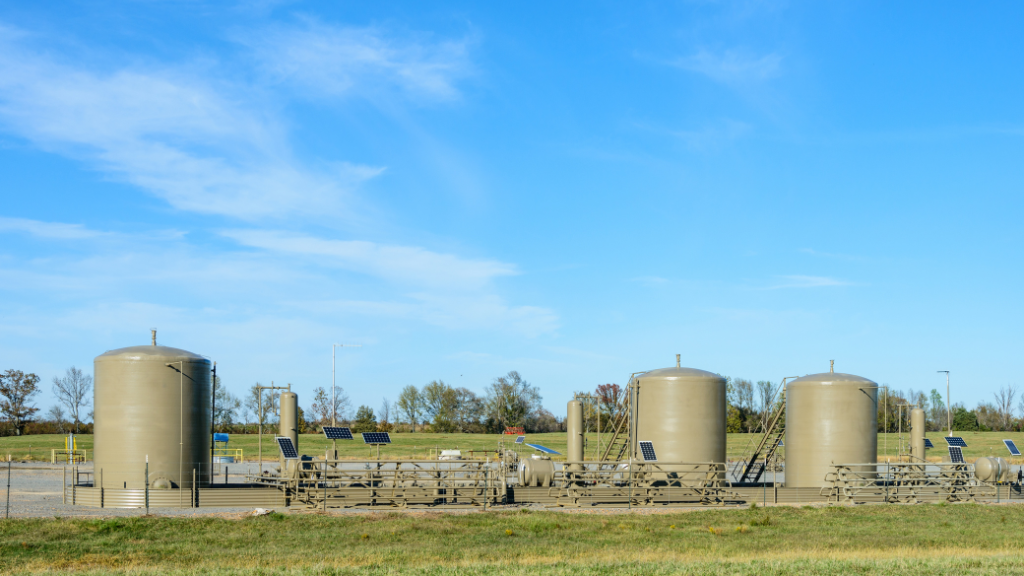Europe braces for another energy shock as Norwegian gas fields close

(CNN) - Europe's energy woes escalated Tuesday as Norwegian oil and gas workers went on strike, shutting three fields in the North Sea and causing a spike in natural gas prices.
Norway's state-owned energy company Equinor said it had shut the fields after some of its employees went on strike over a pay dispute.
The three fields produce the equivalent of about 89,000 barrels of oil a day, more than 30% of which is natural gas, Equinor said in a statement.
Norway was the second largest source of natural gas to Europe last year, after only Russia, according to Eurostat data.
The disruption comes at a critical moment for the region.
Europe is trying to reduce its reliance on Russia's exports, which are already being curtailed by Moscow.
Any sustained drop in Norway's output could deal a big blow to efforts to replenish gas stocks ahead of the winter, as well as raise the risk of a catastrophic energy shortage.
Germany, the region's biggest economy, has already declared a "gas crisis" and warned it can't rule out introducing rationing to get through the winter.
News of the strike helped push European natural gas futures prices up 5% to hit 172 euros ($177) per megawatt hour, data from the Intercontinental Exchange showed.
That's the highest price since early March in the days following Russia's invasion of Ukraine.
There could be worse to come.
On Wednesday, Norwegian workers are due to strike again, which will result in the shutdown of three additional fields, Equinor said.
Those fields produce the equivalent of about 330,000 barrels of oil a day, of which almost 80% is natural gas.
Another strike is planned for Saturday, which according to calculations by Reuters could shutter about a quarter of Norway's gas output and 15% of its oil output.
Equinor said the impact of the third day of strikes "is not yet clear."
The country's gas exports will be slashed by 60% over the three days of strikes, the Norwegian Oil and Gas Association said Tuesday.
"Norwegian deliveries account for a quarter of European energy supplies, and Europe is entirely dependent on Norway delivering as a nation at a time when Russian supply cuts have created a very tight market for natural gas," the association said in a statement.
The Norwegian government could, in theory, force union leaders and Equinor to the negotiating table if it believes the strike could threaten the "life and health" of the population, though intervention has been controversial in the past, according to Eurofound, an EU labor research agency.
A spokesperson for the Norwegian Ministry of Labour told CNN Business it is "the social partners' responsibility to find a solution to any conflict," and had no further comment on the dispute.
An uncertain winter
The Norwegian strike comes nearly three weeks after Russia reduced the flow of gas to Europe through the Nord Stream 1 pipeline and after it cut off three EU countries and several energy companies for refusing to pay in rubles, rather than euros or dollars.
Gas flows through Nord Stream 1 are currently running at just 40% of capacity, according to an analysis by S&P Global Platts.
To add to the uncertainty, deliveries through the pipeline are due to stop completely for 10 days from the start of next week for maintenance work.
"The concern is rather that gas shipments may be even further reduced or not even resumed at all following the maintenance work," Carsten Fritsch, analyst for energy, agriculture and precious metals at Commerzbank, wrote in a note on Tuesday.
"This would make it virtually impossible to replenish European natural gas stocks for next winter and would necessitate further-reaching political measures and cuts to gas consumption," he added.
Gas storage facilities in the European Union are about 59% full, data from Gas Infrastructure Europe show. That is about three percentage points below usual storage levels for this time of year, Fritsch said.
He added that if the strikes in Norway were to continue, the "already tight" European gas market would worsen, causing further gas price rises.
Bigger headache
Alex Froley, an analyst at the Independent Commodity Intelligence Services, told CNN Business the bigger problem facing Europe was the closure of a major liquefied natural gas (LNG) plant in the United States.
A fire at the Freeport LNG facility in Texas last month has temporarily stopped production.
Normally, the facility produces about one-fifth of the US' LNG exports, according to analytics firm Vortexa.
In recent months, Europe has become increasingly reliant on imports of LNG to compensate for the reduction in Russian natural gas supplies.
"Gas demand for heating is greatly reduced in summer, though, and Norway always carries out some maintenance in summer — so it's not an immediate physical problem for the market to see some reductions," Froley said.
"[The Freeport LNG plant has] been a big source of supply for Europe this year, and isn't expected back until October at the earliest," he added.